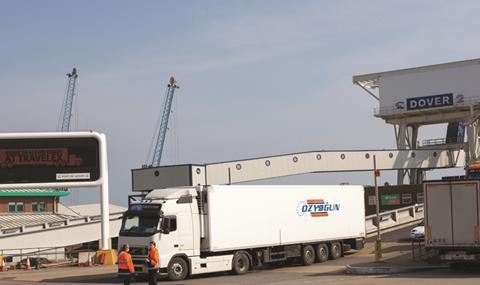
The government has suspended the introduction of pre-arrival forms for EU imports in the event of a no-deal Brexit.
HMRC said the six-month waiver of the Security and Safety Declarations would give companies more time to prepare for changes to EU-UK trade arrangements in the event the country leaves without a deal.
It said that following a series of meetings with haulage representatives this week, it decided that the status quo would be temporarily maintained.
Currently entry summary declarations are not required when importing goods from the EU. They will continue to apply for trade from the rest of the world.

Mel Stride, financial secretary to the Treasury, said: “We’ve listened to businesses and are responding to their concerns.
“We have been adamant that in the event of no deal, trade must continue at our borders, and we will continue to make our borders secure.
“Maintaining continuity with the current system for the first six months and phasing entry summary declarations in will ensure we deliver on that promise.”
The new rules only apply to goods coming from the EU, and will maintain the status quo for carriers.
Importers will still be required to submit import declarations for customs purposes, which are not the same as entry summary declarations.
The RHA welcomed the news, but described it as “a stay of execution”.
RHA chief executive Richard Burnett said: “We have been insistent that the proposal to introduce consignment level Safety and Security Declarations for imported road haulage would be impossible to introduce by 29 March.
“The extension will help but it still isn’t enough. There is no guarantee that businesses will have the necessary processes in place in six months’ time.”
Pauline Bastidon, FTA head of global and European policy, said it was imperative that a similar waiver was adopted by the EU.
She added: “Above all, it is vital that the UK’s supply chain remains as frictionless as possible - British business needs to be confident that goods and materials will continue to transit the nation's borders as swiftly and efficiently as possible.”













